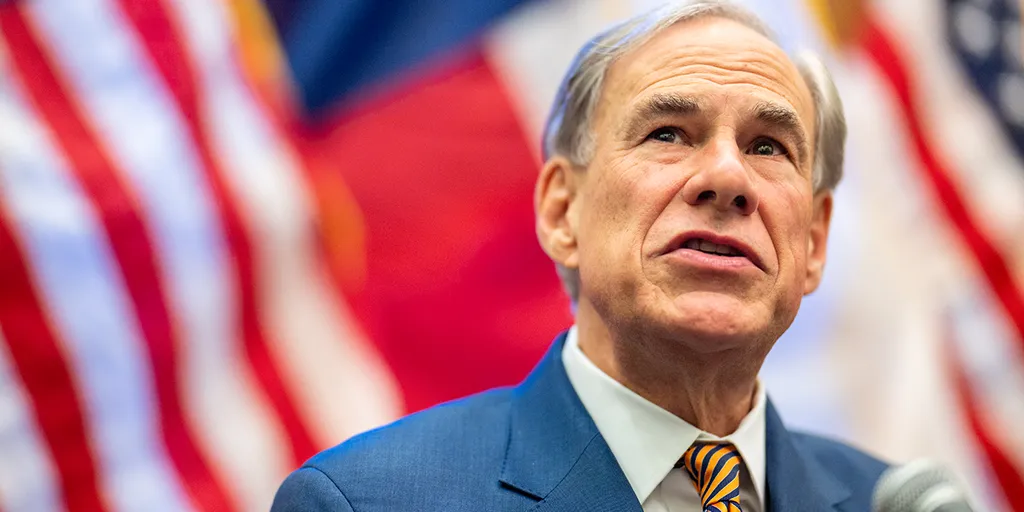Gerrymandering has been a staple of the Republic since its beginning. The practice has such a storied tradition that it is named after Elbridge Gerry, one of our founding fathers who served as vice president under President James Madison. For decades, leftists attempted to outlaw partisan gerrymandering. Justice Anthony Kennedy could not make up his mind on the issue, so it languished until he retired. Fortunately for the Constitution, President Trump replaced Justice Kennedy -- the Court's swing vote for over a dozen years -- with solid constitutionalist Justice Brett Kavanaugh. In 2019, thanks to Kavanaugh's addition, the Court upheld partisan gerrymandering in Rucho v. Common Cause. Legislatures cannot gerrymander based on race, but they can do so based on partisanship.
Earlier this year, Texas did just that. Yet, a three-judge district court panel invalidated Texas's map earlier this week and ordered that the map drawn by the legislature in 2021 remain in effect for the midterm elections. This ruling could cost Republicans five seats in the U.S. House of Representatives. The ruling claims that minority votes would be diluted were the new map to go into effect. It does not matter, according to the ruling, that the legislators who voted to redistrict never advocated in favor of discrimination on the basis of race. Texas Gov. Greg Abbott and Attorney General Ken Paxton have immediately appealed to the Supreme Court the 2-1 ruling, which was shockingly written by Texas U.S. District Judge Jeffrey Brown -- handpicked by U.S. Senator Ted Cruz in 2019. U.S. Fifth Circuit Judge Jerry Smith, the adult on the 3-judge panel, dissented.
It is imperative for the justices to stay the ruling using the emergency docket, a vehicle that permits the Court to pause rulings without full briefing and oral argument when extraordinary circumstances necessitate it. Here, the problem lies in the way courts have wrongly applied the Voting Rights Act of 1965 for decades. The current system allows DEI districts; that is, current law mandates majority-minority districts, explicitly requiring racial discrimination in redistricting. The justices are considering the proper interpretation of this statute in Louisiana v. Callais. Even if there might have been a time when such a scheme was permissible at the height of segregation when the Voting Rights Act was passed, that period has long since lapsed. Kavanaugh focused on this point during oral argument in Callais. It would, of course, be ideal for the Court to hold that the scheme was never permissible, as justices Clarence Thomas, Samuel Alito, and Neil Gorsuch suggested during oral argument. Either way, the justices should release the Callais decision in short order so that legislatures can respond accordingly in time for the midterms.
It is almost certain that the justices have decided Callais and are crafting the majority, concurring, and dissenting opinions. That decision undoubtedly will impact the way the Texas case is decided. If the justices know that they will be curtailing the Voting Rights Act to end mandatory majority-minority districts, they should not allow the ruling of the lower court to stand. In other words, Texas should not be forced to have districts in place that, if the Court rules according to the Constitution, are unlawful.
There is a separate reason why the justices should stay the ruling of the lower court. In Purcell v. Gonzalez (2006), the Court held that federal courts ordinarily should not interfere in elections when the elections are about to occur. Based on this principle, the justices stayed a similar ruling to the Texas one in 2022. In Merrill v. Milligan, the Court dealt with a district court ruling by a three-judge panel that had enjoined the implementation of Alabama's new congressional map. The panel had issued its ruling about two months prior to the beginning of absentee voting in the Alabama primaries. In concurring in the grant of the stay of that ruling, Kavanaugh emphasized the closeness of the election, citing the decision in Purcell.
The Texas case presents a similar time crunch. The primaries will occur in March, and absentee voting will begin weeks before that. Military personnel overseas need extra time to send in their votes, as many are stationed in remote locations thousands of miles away, and others are in the middle of the ocean on ships or submarines. The filing deadline for the primaries is Dec. 8, only three weeks away. The ruling by the lower court has wreaked havoc; candidates had been planning their runs based on the newly-drawn districts. The justices must restore order to this chaotic mess that the lower court has caused.
One more important point requires emphasis. Again, one of the two judges who invalidated the map is Brown. He invalidated a map on similar grounds in 2024 concerning Galveston County. The Fifth Circuit, with all 17 judges sitting (formally called en banc), reversed his decision in Petteway v. Galveston County. Brown, again, is a Ted Cruz pick. Presidents must pick district judges based on the recommendations of home-state senators. These senators wield veto power through an outdated tradition called the blue slip. Picking quality district judges is nearly impossible in blue states, where leftist senators will veto excellent candidates. Senators in red states, particularly deep-red states like Texas, must ensure that candidates of the highest quality are recommended for nomination. Brown was a clear miss by Ted Cruz.
In light of the upcoming filing deadline, time is incredibly short. The Supreme Court rapidly must stay this incorrect order and restore the lawful map passed and signed into law earlier this year. The justices also must rule against continuing the practice of DEI districts by restoring sanity to voting rights jurisprudence. This decision also needs to occur quickly so that legislatures across the country can have time to redistrict prior to the midterms. There is no place for racial discrimination in elections, and there is no place for improper judicial interference in elections. The Supreme Court needs to put a stop to all of it now.
